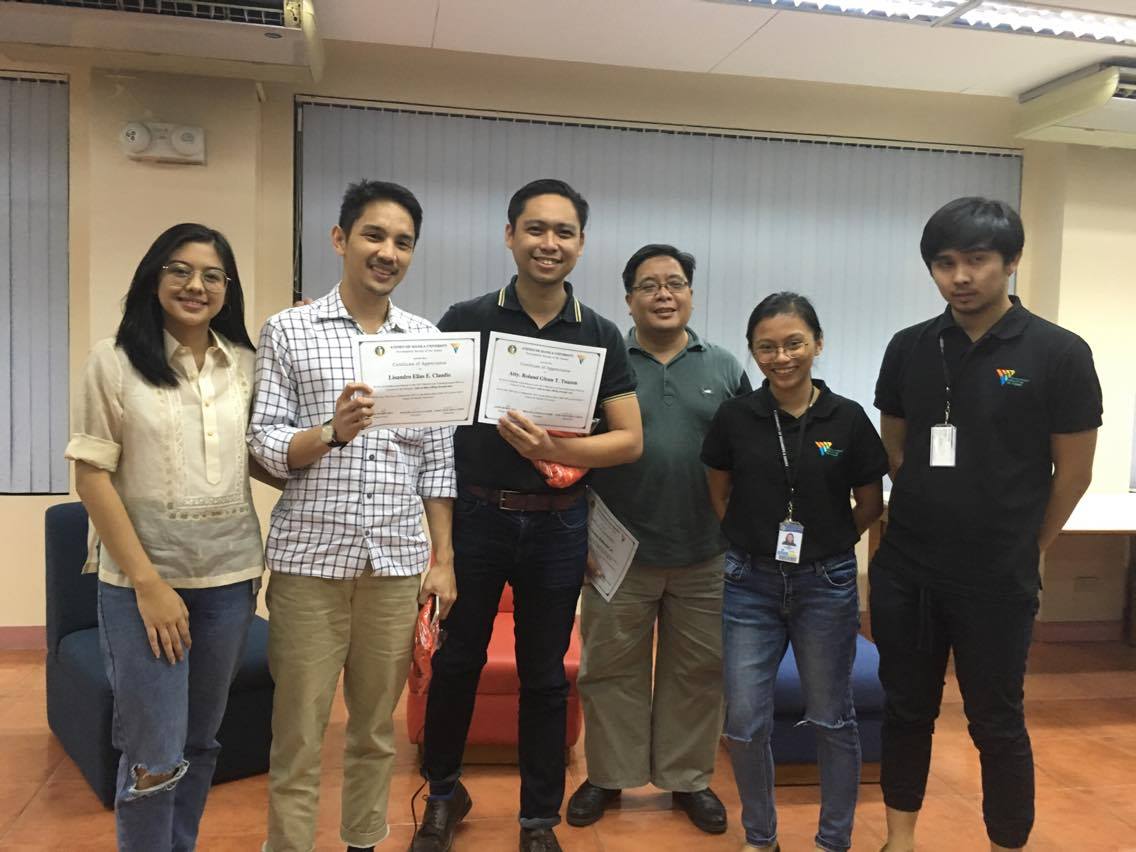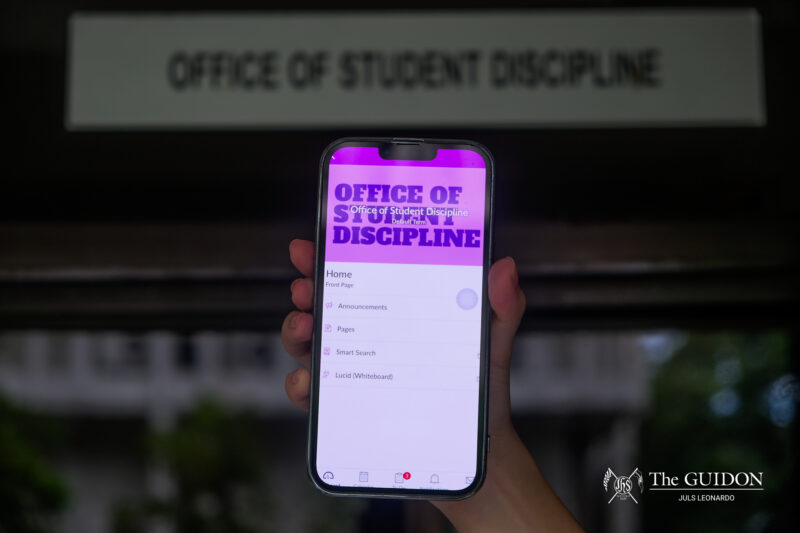PROFESSIONALS DISCUSSED various aspects of the administration of the late dictator Ferdinand Marcos, Sr. and martial law under his regime in Sàla sa Sala: Sifting through Sins, on September 28, Thursday at the Matteo Ricci Hall.
Historian and former assistant professor from the Ateneo Political Science and Development Studies Departments Lisandro Claudio, as well as lawyer Glenn Tuazon discussed Martial Law and answered questions about various misconceptions about it.
Additionally, Atty. Vicente Baltazar, Jr., head of the Technical Support Division of the Human Rights Victims’ Claims Board (HRVCB) talked about the board’s functions.
The forum was organized by the Development Society of the Ateneo in cooperation with the Martial Law Museum team, and the HRVCB.
Martial law misconceptions, reparation
The first segment tackled martial law and compared past administrations to each other. In response to a question regarding the constitutionality of martial law in both the Marcos and Duterte administration, Tuazon said it is only permissible if the country is under an invasion or a rebellion, according to Article VII, Section 18 of the 1987 Philippine Constitution.
“Is martial law allowed under the constitution? Yes. But there are a lot of hoops and bars you have to jump through. I don’t know if the current declaration in Mindanao is justified,” added Tuazon.
The speakers were then prompted if there was anything positive that came out of Martial Law, to which Claudio mentioned the economy during the time.
“1973, 1975 was the highest growth rate for the Philippine economy in post-war Philippine history, so there must have been something right about the Marcosian economic model to be able to save us from the greatest global crisis in the world,” Claudio said.
In spite of this growth, he said that the good economic performance in the 1970s led to its downfall in the 1980s.
“People will remember the wealth of the early 70s, but they don’t realize is that that wealth was bought through very very dangerous loans that decreased our credit,” he added.
In response to a query whether Benigno “Ninoy” Aquino, Jr. and the communists were involved with the Plaza Miranda bombing, Claudio stated that he was “100% sure” Aquino was a collaborator of the Communist Party of the Philippines (CPP), and “90% sure” the Plaza Miranda bombing was organized by the CPP.
“I don’t think [Aquino] was involved, but he could’ve been tipped off,” he said.
With regard to what made the 1986 EDSA revolution peaceful, Claudio cited historian Alfred McCoy’s explanation in his book Closer Than Brothers (1999). He believed that no violence ensued because the people who were supposed to engage in an attack on EDSA were Philippine Military Academy classmates who were “closer than brothers.”
Additionally, in relation to how the rest of the Philippines was when the EDSA Revolution happened, Claudio stated that there were “mini EDSAs” across the country, such as in Marawi and Cebu.
Lastly, concerning the political deal to offer the Marcoses immunity in exchange for getting back a portion of their ill-gotten wealth, Tuazon saw it as an admission of guilt. He said he would prefer attaining justice over obtaining their money. “I’d rather see Imelda [Marcos] in jail,” he said.
Making amends
For the second segment, Baltazar spoke about the HRVBC’s mandate to recognize and give reparations to the victims of human rights abuses committed during Martial Law, and to accept, evaluate, and adjudicate claims that have been filed with the board.
The board is now adjudicating 75,736 claims from human rights violations victims.
According to Baltazar, although funds have been allotted for the reparation of the Martial Law victims, the board has to determine who are the eligible claimants, and who are the fraudulent claimants.
“It’s very hard. Sometimes we ask them to submit additional evidence, but if you could not, we have no choice but to deny it,” he said.
Moving forward
In the open forum, a student asked if there was any truth to the belief that the Marcoses were well-off before they got into power, and that the money they have right now is because of their own doing. In response, Claudio said that it is very well-documented that they obtained a lot of ill-gotten wealth.
“Every reputable historian, every reputable journal would accept that Marcos had ill-gotten wealth,” he added.
Meanwhile, in response to a query about non-monetary forms of reparation, Baltazar said that we need to see to it that we live in a democracy that does not foster injustice.
“You want to make sure that justice will be done moving forward. That’s why we have to be vigilant,” added Tuazon.
The speakers were then asked if the current administration is worse than the Marcos administration in a general sense, to which Claudio replied that the body count in accordance with extra-judicial killings (EJKs) is worse.
“Extra-judicial killings under Marcos is estimated [to be] 3,000… The minimum estimate of EJKs [in the Duterte administration] is 7,000, and let’s not mince words here, he’s accountable for that,” he said.
Additionally, a member of the audience asked if there is anything the Marcoses could do to absolve themselves of their crimes. Baltazar responded by saying they “cannot totally wash their hands,” especially with the HRVCB’s efforts.
Moreover, a question was raised to Baltazar, asking if there is any fear on his part that the board will end before it is able to meet their objectives. “We’re gung-ho in finishing our objectives. There’s no other choice,” he responded.
Finally, a freshman asked what the speakers think of the belief that the reason why the country is in this state today is due to the failure of the Aquino administration and their brand of democracy.
“If you’re not satisfied with how democracy works, then you find a way to reform it, you find a way to make it better,” said Tuazon.
“It’s better to have gradual predictable change. We can always make ourselves a little more perfect, a little better,” added Claudio.







